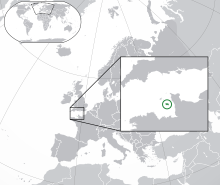
Back معاملة المثليين في جيرزي Arabic Diversidad sexual en Jersey Spanish Droits LGBT à Jersey French זכויות להט"ב בג'רזי HE Права ЛГБТ в Джерсі Ukrainian Quyền LGBT ở Jersey Vietnamese
LGBTQ rights in Jersey | |
|---|---|
 | |
| Status | Legal since 1990, equal age of consent since 2006 |
| Gender identity | Right to change legal gender since 2010 |
| Military | UK responsible for defence |
| Discrimination protections | Sexual orientation, gender reassignment and intersex status |
| Family rights | |
| Recognition of relationships | Civil partnerships since 2012; Same-sex marriage since 2018 |
| Adoption | Full adoption rights since 2012 |
| Part of a series on |
| LGBTQ rights in the United Kingdom |
|---|
 |
| By location |
| Policy aspects |
| Legislation |
| Culture |
| Organisations |
| History |
Lesbian, gay, bisexual, and transgender (LGBTQ) rights in the British Crown dependency of Jersey have evolved significantly since the early 1990s. Same-sex sexual activity was decriminalised in 1990. Since then, LGBTQ people have been given many more rights equal to that of heterosexuals, such as an equal age of consent (2006), the right to change legal gender for transgender people (2010), the right to enter into civil partnerships (2012), the right to adopt children (2012) and very broad anti-discrimination and legal protections on the basis of "sexual orientation, gender reassignment and intersex status" (2015). Jersey is the only British territory that explicitly includes "intersex status" within anti-discrimination laws. Same-sex marriage has been legal in Jersey since 1 July 2018.
The status of LGBT rights is similar to that of the United Kingdom and the other two Crown dependencies (the Isle of Man and Guernsey). Societal acceptance of homosexuality and same-sex relationships is high. Jersey organised its first public LGBT event in July 2014, when hundreds of participants gathered in Saint Helier to call for the legalisation of same-sex marriage.[1]
- ^ "Jersey holds first gay rights rally". BBC News. 12 July 2014.